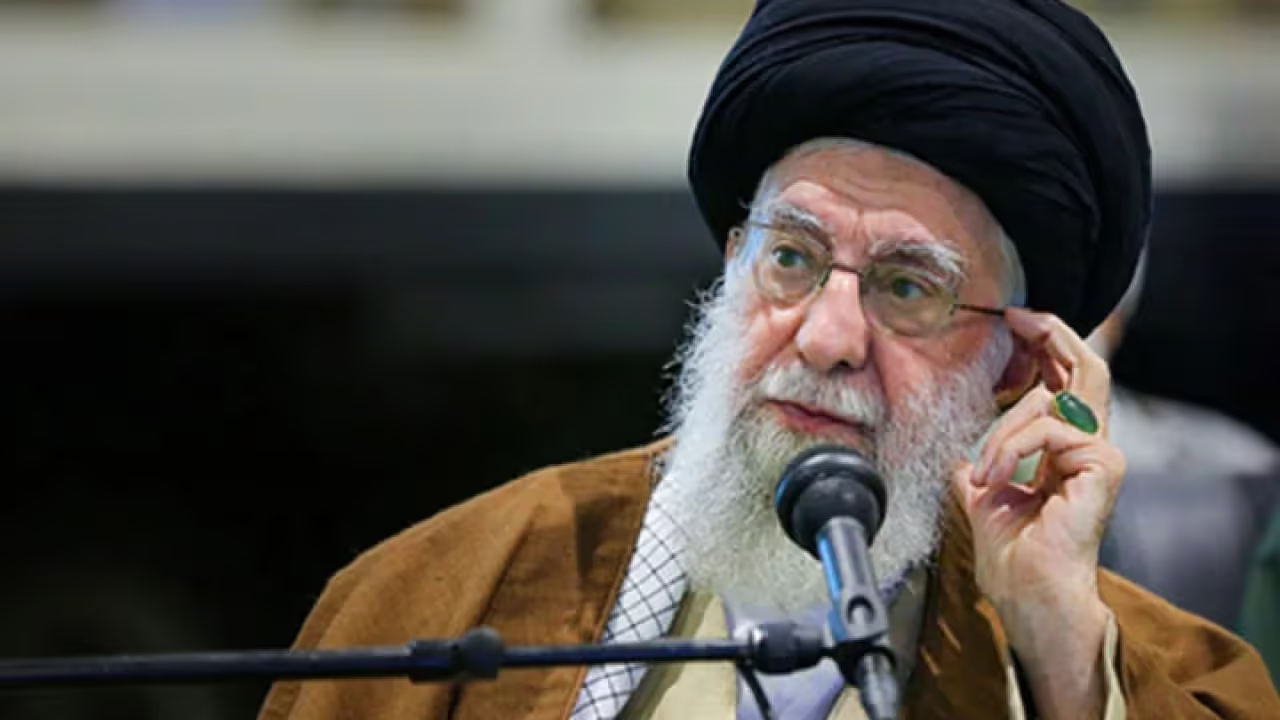Iran Vows Retaliation for Hezbollah Leader Hassan Nasrallah's Death

Tensions between Israel and Iran have soared to new heights in the aftermath of the death of Hezbollah’s secretary-general Hassan Nasrallah, who was killed through an Israeli air raid on Friday in Beirut. Nasrallah ‘will not go unavenged,’ said Iran’s Supreme Leader Ayatollah Ali Khamenei, and the Israeli intervention will certainly cause a further deterioration in Israel’s volatile relationship with Iran’s Lebanese proxy.
Iran Declares Five Days of Mourning
In a televised speech on Saturday, Khamenei declared nationwide three days of mourning in Iran over Nasrallah’s death. For Khamenei, the Lebanese leader’s death was about the ‘martyrdom of the great Nasrallah’ and called the Hezbollah leader a ‘path and a school of thought’. Hezbollah, a Lebanese Shia Islamist militant group, is regarded by many observers as one of Iran’s most important proxy forces in the region.The statement from Khamenei comes amid widespread fears that Nasrallah’s assassination could ignite a wider regional war. Hezbollah on Saturday confirmed Nasrallah’s death but refused to engage with Israel’s reports that other senior members of the group, including Ali Karaki, the head of Hezbollah’s Southern Front, were killed in the strike.
Israeli Military Claims Major Victory
Israeli officials described Nasrallah as having ‘the blood of thousands’ on his hands for his alleged role in planning imminent attacks on Israel. Israeli prime minister Benjamin Netanyahu and several senior military officials have celebrated the strike as yet another of Israel’s great successes in its campaign against Hezbollah, and most notably in the face of the organization’s increasing military arsenal.The strike, which destroyed several apartment buildings in the Dahiyeh suburb of Beirut, is also believed to have killed the Iranian Revolutionary Guards general Gen Abbas Nilforoushan, deputy commander of operations of the IRGC, according to Iranian news outlets close to the IRGC. The general was reportedly killed while commanding operations from inside Hezbollah.
Iranian Response: Strategic or Symbolic?
Khamenei’s promise of revenge is a strong statement but, while analysts wait to see whether Iran will raise the stakes to all-out war, there’s reason to be skeptical: though Khamenei has called upon all Muslims to ‘support Hezbollah with all their means’, he has stopped short of promising an immediate military response. When Iran has responded to previous assault so through proxies or covert means, and recent examples suggest that Khamenei is not necessarily keen on being pulled into a direct confrontation with Israel.Experts remarked that Iran also hadn’t yet responded to the assassination in July 2024 in Tehran of the Hamas leader Ismail Haniyeh – an attack that Hamas and Iran blamed on Israel. This suggested that, while Tehran was sending a signal that it would respond to any attack, it may not be in an immediate hurry to do so.
Broader Implications for the Middle East
Not only Hezbollah will suffer when Nasrallah dies – Iran will also lose the leader of its complex web of partners in the Middle East: the so-called ‘Axis of Resistance’. It encompasses Hezbollah and other militant movements, such as Hamas and the Houthis in Yemen, as well as Shia militias in Iraq and Syria, which are mentored and funded by Iran.Since then, Iran’s proxies across the region have promised a retaliation. On Saturday, the Yemeni Houthi rebel group fired a missile at Tel Aviv, in a show ofollah. Israel’s missile defence systems intercepted it: ISRAEL’S ANTI-MISSILE SYSTEMS intercepted a rocket fired from Yemen by the Houthis earlier today. Houthi spokesperson Yahya Saree said it was in solidarity with Lebanon.27 July 202 Shia militias in Iraq, under the umbrella of the ‘Islamic Resistance in Iraq’, claimed attacks with drones on northern Israel and the Golan Heights.
Khamenei's Next Move
From here, what goes down in the region will depend largely on the way Khamenei and the IRGC choose to react. As Reuters has reported, Khamenei has been evacuated to somewhere safer in Iran; there are also conversations that are currently taking place between Iran and Hezbollah regarding an appropriate response.It represents a critical juncture for Iran, according to Sanam Vakil, Director of the Middle East Program at Chatham House. ‘By sustaining the pressure or ratcheting it up Tehran knows that this will invite more attacks on them but they could do this to keep the pressure on Israel,’ Vakil said. ‘Or they could respond through their various regional allies, and this is where Iraq, Yemen and Syria might come into play.’
Regional Escalation Feared
Since Nasrallah’s death sparked fears of a new conflagration across the Middle East, Hezbollah and Israel have already been skirmishing across their border for the better part of a year, following attacks in the Gaza Strip and the Lebanese terror group’s own rocket barrages into northern Israel. The strike against Nasrallah was the latest in a series of Israeli attempts to cripple the organization’s top leadership and military capabilities.Although its command structure was greatly weakened, analysts say Hezbollah still packs a powerful military punch, with an estimated 150,000 rockets and missiles at its disposal, and is backed by Iran – making it a fierce threat to Israel and its regional allies.
International Response
The international community has been watching events with growing concern. The US president Joe Biden called Nasrallah’s death ‘another slap in the face of terrorism’ and a ‘measure of justice’, while urging both sides to ‘step back from the brink’ to avoid a full-scale war. The US and other Western countries, including the UK and France, have said that further strikes threaten to destabilize the region and risk a wider conflict. The US, the UK and France, among others, have said that further strikes threaten to destabilize the region and risk a wider conflict.Meanwhile, the European Union and the United Nations have issued calls for calm and dialogue between the key parties. Yet, amidst growing tensions and Iran’s non-specific threat of retaliation, what does the region’s future hold?To read more about what’s happening in Lebanon and the rest of the Middle East, visit Reuters and BBC.